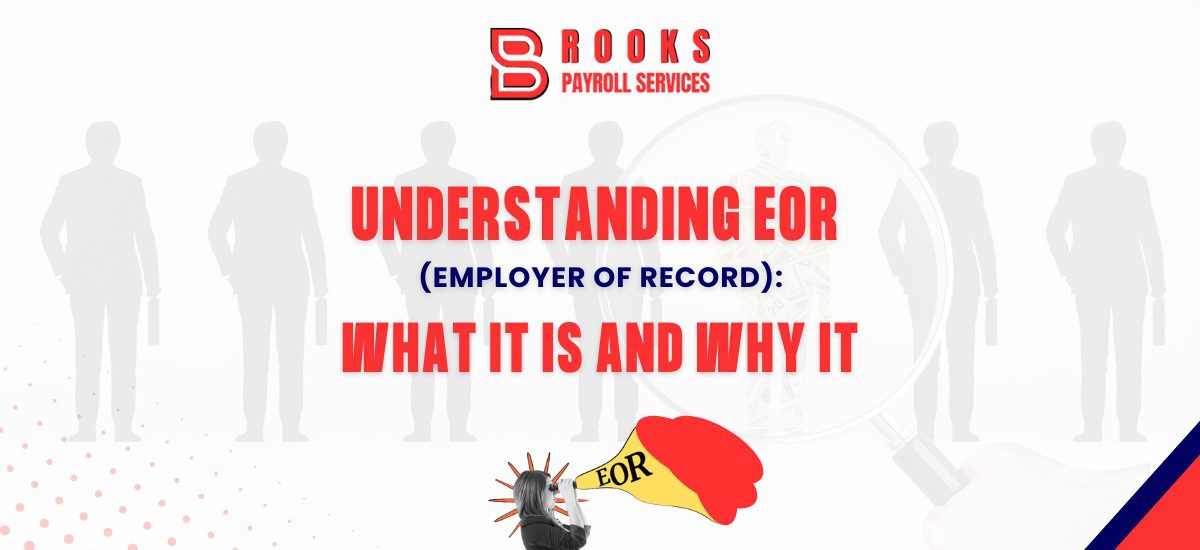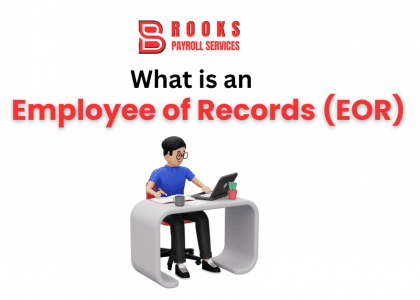Employer of Record (EOR) is a term gaining significant traction in the realm of modern workforce management. In an era characterized by globalization, remote work, and rapidly evolving employment regulations, businesses are increasingly turning to EOR services to streamline their operations, manage risks, and facilitate international expansion.
Introduction to Employer of Record (EOR)
Employer of Record, often abbreviated as EOR, is a third-party entity that assumes the role of the official employer for a group of employees. This arrangement allows companies to outsource various administrative tasks associated with employment, such as payroll processing, benefits administration, and compliance with labor laws. Essentially, the EOR becomes the legal employer of the workers, handling all aspects of employment while the client company retains operational control.
How EOR Works
In the EOR model, the client company maintains control over the day-to-day activities and management of its workforce, while the EOR takes on the responsibilities and liabilities associated with being the employer on record. This includes tasks such as tax withholding, worker classification, and adherence to local employment laws and regulations.
Benefits of Using an EOR
One of the primary benefits of using an EOR is cost-effectiveness. By outsourcing administrative functions related to employment, companies can avoid the expenses associated with establishing legal entities in foreign jurisdictions. Additionally, partnering with an EOR can help mitigate compliance risks, ensuring that all employment-related activities are conducted in accordance with local laws and regulations.
When to Consider Using an EOR
Businesses may choose to utilize EOR services for various reasons, such as expanding into new markets, engaging in temporary or project-based hiring, or mitigating risks associated with managing a global workforce. EORs offer a flexible and scalable solution for companies looking to navigate the complexities of international employment.
Challenges and Considerations
While EOR services offer numerous benefits, there are also challenges to consider. Navigating international regulations and cultural differences can be complex, and selecting the right EOR provider is critical to ensuring compliance and success.
Case Studies and Examples
Real-world examples of companies that have successfully utilized EOR services can provide valuable insights into the benefits and potential pitfalls of this workforce management model.
Comparing EOR vs. Other Workforce Models
EOR services are often compared to other workforce models, such as contract staffing and Professional Employer Organizations (PEOs). Understanding the differences between these models can help companies make informed decisions about their workforce management strategies.
Future Trends and Outlook
The demand for EOR services is expected to continue growing as businesses seek cost-effective and compliant solutions for managing their global workforce. Innovations in technology and compliance solutions will likely shape the future landscape of EOR services.
Conclusion
In conclusion, Employer of Record (EOR) services offer a strategic solution for companies looking to navigate the complexities of modern workforce management. By outsourcing administrative tasks related to employment, businesses can focus on their core operations while ensuring compliance and mitigating risks.
FAQs
What industries benefit most from using an EOR?
Various industries can benefit from EOR services, including technology, finance, healthcare, and manufacturing. Any company with a global workforce or plans for international expansion can potentially benefit from partnering with an EOR.
How does using an EOR impact taxation and payroll processing?
EORs handle tax withholding and payroll processing on behalf of client companies, ensuring compliance with local tax laws and regulations. This can simplify tax reporting and reduce the administrative burden on businesses.
Can a company switch from using an EOR to establishing their own entity in a foreign market?
Yes, companies have the option to transition from using an EOR to establishing their own legal entity in a foreign market. However, this process can be complex and may require careful planning and coordination.
Are there any limitations to the types of employees that can be managed through an EOR?
EORs typically manage a wide range of employee types, including full-time, part-time, and temporary workers. However, there may be restrictions or limitations based on local laws and regulations.
How do EOR services vary across different countries and regions?
EOR services may vary based on factors such as local labor laws, cultural norms, and market conditions. It’s essential for companies to work with EOR providers that have expertise in the specific regions where they operate.







